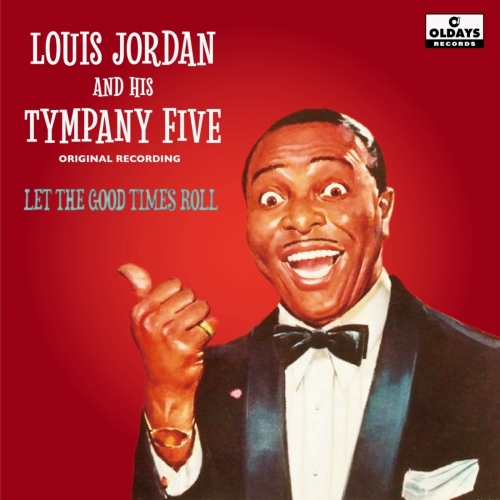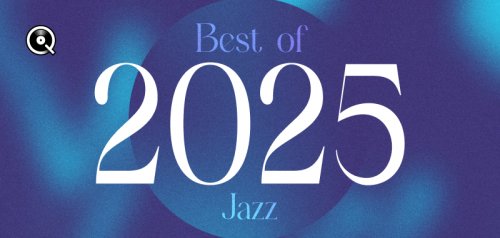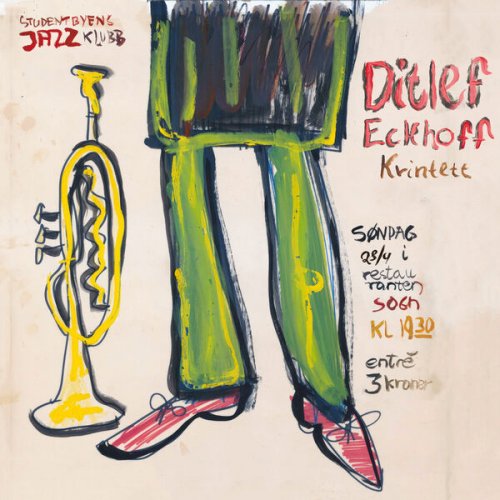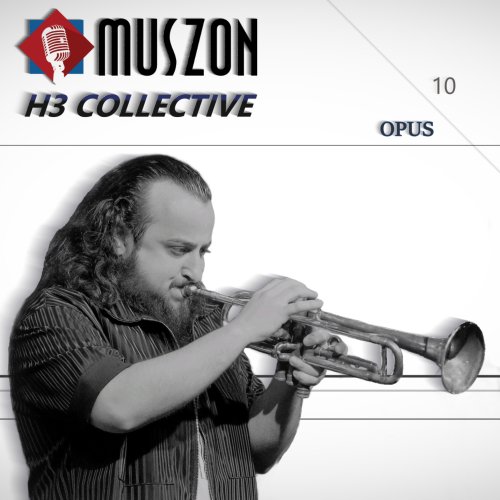Artist:
The Charles Mingus Duo & Trio With Spaulding Givens & Max Roach
Title:
Debut Rarities, Vol. 2
Year Of Release:
1992
Label:
OJC [OJCCD 1808-2]
Genre:
Jazz, Post Bop
Quality:
FLAC (tracks + .cue,log,scans) | MP3/320 kbps
Total Time: 49:04
Total Size: 204 MB(+3%) | 116 MB(+3%)
WebSite:
Album Preview
Tracklist01. What Is This Thing Called Love? (Porter) - 3:06
02. Darn That Dream (DeLange-Van Heusen) - 3:43
03. Yesterdays (piano solo) (Kern-Harbach) - 3:09
04. Body and Soul (Green-Sour-Heyman-Eyton) - 3:38
05. Blue Moon (Rodgers-Hart) - 3:37
06. Blue Tide (Givens) - 3:15
07. Darn That Dream (alternate take) (DeLange-Van Heusen) - 3:41
08. Jeepers Creepers (take 1) (Warren-Mercer) - 3:41
09. Jeepers Creepers (take 2) (Warren-Mercer) - 3:08
10. Day Dream (take 1) (Ellington-Strayhorn-Latouche) - 3:46
11. Day Dream (take 2) (Ellington-Strayhorn-Latouche) - 2:43
12. Theme from Rhapsody in Blue (take 1) (Gershwin) - 3:29
13. Theme from Rhapsody in Blue (take 2) (Gershwin) - 2:44
14. Jet (take 1) (Benjamin-Weiss-Revel) - 2:48
15. Jet (take 2) (Benjamin-Weiss-Revel) - 2:36
personnel : Charles Mingus - bass
Spaulding Givens (Nadi Qamar) (#1-9), Spaulding Givens (#10-15) - piano
Max Roach - drums (#10-15)
Vol. 2 in the Original Jazz Classics CD reissue series of the complete Debut Records catalog reaches back toward the very beginnings of the Charles Mingus discography. Although he had recorded as a sideman and leader during the late '40s, the April 1951 duets with pianist Spaulding Givens (Nadi Qamar) are remarkable glimpses of Mingus actively participating in recording sessions for a label that he co-founded. On tracks ten through 15, the addition of Max Roach (who with Celia Mingus was also a co-founder of Debut Records) adds yet another level of creativity to the proceedings. This is chamber jazz of the highest order. It gently illuminates the challenging paths that these young musicians explored at a time when the future of jazz was indeterminate and pregnant with possibilities. Use these intimate essays to better understand where Ming was at in 1959, 1961, and 1974.
Exact Audio Copy V1.0 beta 3 from 29. August 2011
EAC extraction logfile from 2. January 2015, 1:24
Charles Mingus / Deubt Rarities Volume 2
Used drive : PLEXTOR CD-R PX-W5224A Adapter: 3 ID: 0
Read mode : Secure
Utilize accurate stream : Yes
Defeat audio cache : Yes
Make use of C2 pointers : No
Read offset correction : 30
Overread into Lead-In and Lead-Out : No
Fill up missing offset samples with silence : Yes
Delete leading and trailing silent blocks : No
Null samples used in CRC calculations : Yes
Used interface : Native Win32 interface for Win NT & 2000
Gap handling : Appended to previous track
Used output format : User Defined Encoder
Selected bitrate : 128 kBit/s
Quality : High
Add ID3 tag : No
Command line compressor : C:\Program Files\Exact Audio Copy\Flac\flac.exe
Additional command line options : -8 -V -T "ARTIST=%artist%" -T "TITLE=%title%" -T "ALBUM=%albumtitle%" -T "DATE=%year%" -T "TRACKNUMBER=%tracknr%" -T "TOTALTRACKS=%numtracks%" -T "GENRE=%genre%" -T "ALBUMARTIST=%albumartist%" -T "ALBUM ARTIST=%albumartist%" -T "COMMENT=EAC Secure Mode, Test & Copy, AccurateRip, FLAC -8" %source%
TOC of the extracted CD
Track | Start | Length | Start sector | End sector
---------------------------------------------------------
1 | 0:00.00 | 3:05.52 | 0 | 13926
2 | 3:05.52 | 3:42.45 | 13927 | 30621
3 | 6:48.22 | 3:09.13 | 30622 | 44809
4 | 9:57.35 | 3:37.62 | 44810 | 61146
5 | 13:35.22 | 3:37.30 | 61147 | 77451
6 | 17:12.52 | 3:14.40 | 77452 | 92041
7 | 20:27.17 | 3:41.20 | 92042 | 108636
8 | 24:08.37 | 3:40.65 | 108637 | 125201
9 | 27:49.27 | 3:07.50 | 125202 | 139276
10 | 30:57.02 | 3:45.45 | 139277 | 156196
11 | 34:42.47 | 2:43.30 | 156197 | 168451
12 | 37:26.02 | 3:28.63 | 168452 | 184114
13 | 40:54.65 | 2:43.55 | 184115 | 196394
14 | 43:38.45 | 2:48.25 | 196395 | 209019
15 | 46:26.70 | 2:36.02 | 209020 | 220721
Track 1
Filename F:\EAC WAV\01 - What Is This Thing Called Love.wav
Pre-gap length 0:00:02.00
Peak level 38.8 %
Extraction speed 4.3 X
Track quality 100.0 %
Test CRC 8B8F6FD6
Copy CRC 8B8F6FD6
Cannot be verified as accurate (confidence 2) [9711944E], AccurateRip returned [B24F3386] (AR v2)
Copy OK
Track 2
Filename F:\EAC WAV\02 - Darn That Dream.wav
Pre-gap length 0:00:01.12
Peak level 73.9 %
Extraction speed 5.1 X
Track quality 100.0 %
Test CRC A14502D8
Copy CRC A14502D8
Cannot be verified as accurate (confidence 2) [38F7B62C], AccurateRip returned [2382C464] (AR v2)
Copy OK
Track 3
Filename F:\EAC WAV\03 - Yesterday (Piano Solo).wav
Pre-gap length 0:00:02.55
Peak level 80.8 %
Extraction speed 5.3 X
Track quality 100.0 %
Test CRC 4CB77007
Copy CRC 4CB77007
Cannot be verified as accurate (confidence 2) [1D0467AB], AccurateRip returned [55E75BE9] (AR v2)
Copy OK
Track 4
Filename F:\EAC WAV\04 - Blood And Soul.wav
Pre-gap length 0:00:01.03
Peak level 64.9 %
Extraction speed 5.7 X
Track quality 100.0 %
Test CRC 50FEE921
Copy CRC 50FEE921
Cannot be verified as accurate (confidence 2) [FC5C29A4], AccurateRip returned [F499FAE1] (AR v2)
Copy OK
Track 5
Filename F:\EAC WAV\05 - Blue Moon.wav
Pre-gap length 0:00:00.62
Peak level 81.5 %
Extraction speed 4.1 X
Track quality 100.0 %
Test CRC 26A264A2
Copy CRC 26A264A2
Cannot be verified as accurate (confidence 2) [FC8C894B], AccurateRip returned [A29EF1BE] (AR v2)
Copy OK
Track 6
Filename F:\EAC WAV\06 - Blue Tide.wav
Pre-gap length 0:00:02.00
Peak level 79.2 %
Extraction speed 4.9 X
Track quality 99.9 %
Test CRC 0F0159FD
Copy CRC 0F0159FD
Cannot be verified as accurate (confidence 2) [52DF195D], AccurateRip returned [7F99F15C] (AR v2)
Copy OK
Track 7
Filename F:\EAC WAV\07 - Darn That Dream.wav
Pre-gap length 0:00:01.27
Peak level 83.2 %
Extraction speed 6.7 X
Track quality 100.0 %
Test CRC B5BFE426
Copy CRC B5BFE426
Cannot be verified as accurate (confidence 2) [3D029B06], AccurateRip returned [10F1E60C] (AR v2)
Copy OK
Track 8
Filename F:\EAC WAV\08 - Jeppers Creeperes Take 1.wav
Pre-gap length 0:00:01.50
Peak level 85.9 %
Extraction speed 7.0 X
Track quality 100.0 %
Test CRC 9345F17E
Copy CRC 9345F17E
Cannot be verified as accurate (confidence 2) [0784B30F], AccurateRip returned [68242C69] (AR v2)
Copy OK
Track 9
Filename F:\EAC WAV\09 - Jeepers Crepers Take 2.wav
Pre-gap length 0:00:01.27
Peak level 89.6 %
Extraction speed 7.0 X
Track quality 100.0 %
Test CRC 4B7F74EE
Copy CRC 4B7F74EE
Cannot be verified as accurate (confidence 2) [8BB917B1], AccurateRip returned [CF31C2B4] (AR v2)
Copy OK
Track 10
Filename F:\EAC WAV\10 - Day Dream Take 1.wav
Pre-gap length 0:00:01.37
Peak level 60.1 %
Extraction speed 2.4 X
Track quality 100.0 %
Test CRC BE63B7A6
Copy CRC BE63B7A6
Cannot be verified as accurate (confidence 2) [E5152022], AccurateRip returned [64CFA03A] (AR v2)
Copy OK
Track 11
Filename F:\EAC WAV\11 - Day Dreamers Take 2.wav
Pre-gap length 0:00:02.12
Peak level 73.8 %
Extraction speed 7.4 X
Track quality 100.0 %
Test CRC 8CD49DA4
Copy CRC 8CD49DA4
Cannot be verified as accurate (confidence 2) [E6C279C0], AccurateRip returned [C082F820] (AR v2)
Copy OK
Track 12
Filename F:\EAC WAV\12 - Theme From Rhapsody In Blue Take 1.wav
Pre-gap length 0:00:03.12
Peak level 61.9 %
Extraction speed 4.0 X
Track quality 99.9 %
Test CRC 161B3E17
Copy CRC 161B3E17
Cannot be verified as accurate (confidence 2) [C6D45D05], AccurateRip returned [404A935F] (AR v2)
Copy OK
Track 13
Filename F:\EAC WAV\13 - Theme From Rhapsody In Blue.wav
Pre-gap length 0:00:02.23
Peak level 60.3 %
Extraction speed 7.9 X
Track quality 100.0 %
Test CRC 3F5672D7
Copy CRC 3F5672D7
Cannot be verified as accurate (confidence 2) [EF3B77E3], AccurateRip returned [580A8577] (AR v2)
Copy OK
Track 14
Filename F:\EAC WAV\14 - Jet Take 1.wav
Pre-gap length 0:00:03.53
Peak level 92.6 %
Extraction speed 3.7 X
Track quality 99.9 %
Test CRC 93D09CC8
Copy CRC 93D09CC8
Cannot be verified as accurate (confidence 2) [3C4D4794], AccurateRip returned [3C9E74A3] (AR v2)
Copy OK
Track 15
Filename F:\EAC WAV\15 - Jet Take 2.wav
Pre-gap length 0:00:02.35
Peak level 92.1 %
Extraction speed 5.7 X
Track quality 99.9 %
Test CRC 4F9881E2
Copy CRC 4F9881E2
Cannot be verified as accurate (confidence 2) [6A612B32], AccurateRip returned [F2B9FC20] (AR v2)
Copy OK
No tracks could be verified as accurate
You may have a different pressing from the one(s) in the database
No errors occurred
End of status report
---- CUETools DB Plugin V2.1.3
[CTDB TOCID: ODR8XclWUs01AWaA5gEGcKem8rI-] database access error: Pending
==== Log checksum 44A57A903FEF16709DA0972F96A731B21D424420B97D62961E129DF6DA5D5006 ====
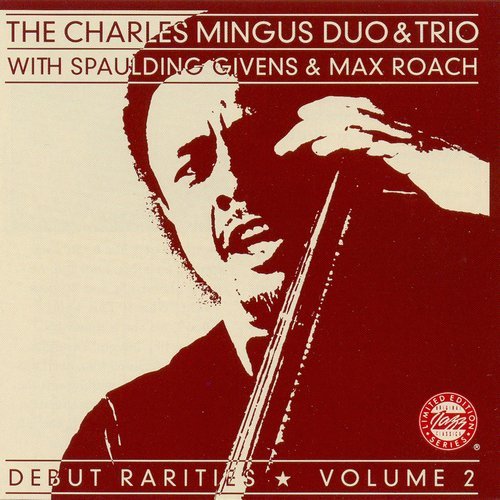
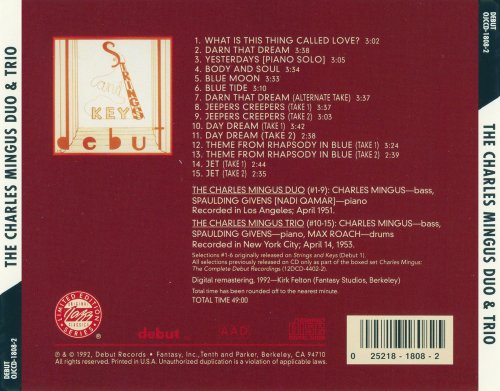

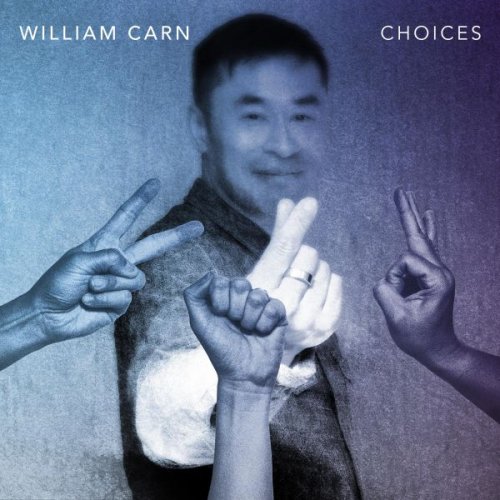
![Ikumi Koyama - The Things In The Past (2025) [Hi-Res] Ikumi Koyama - The Things In The Past (2025) [Hi-Res]](https://www.dibpic.com/uploads/posts/2025-12/1766721860_wwg1kc91dmcgc_600.jpg)
